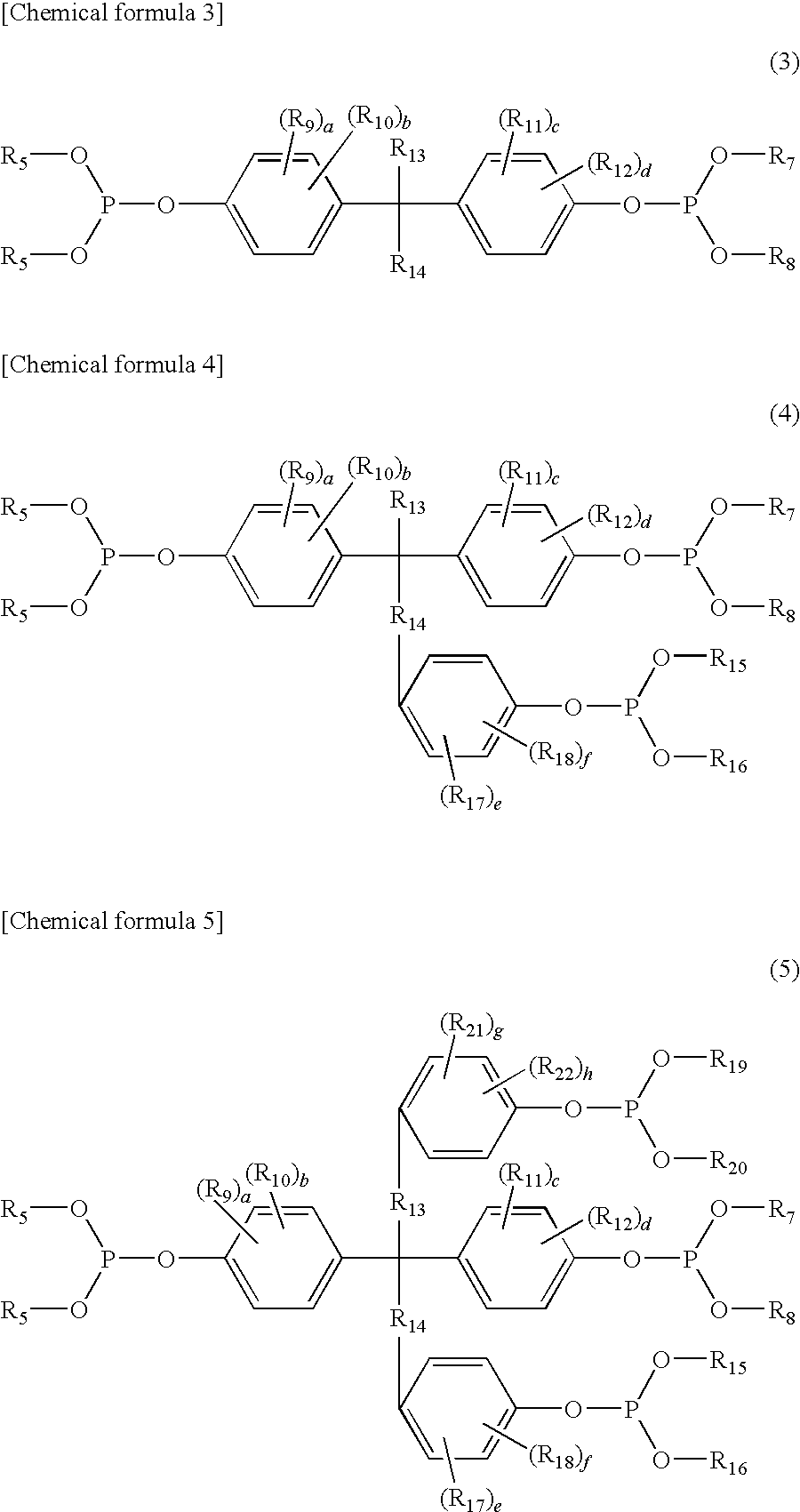Catalyst for Producing Polyester and Method for Producing Polyester
a technology of catalyst and polyester, which is applied in the direction of organic compound/hydride/coordination complex catalyst, physical/chemical process catalyst, organic compound/hydride catalyst, etc., can solve the problem of deterioration of thermal stability of the resulting polymer, reduced operability, and difficulty in general use of germanium compound, etc. problem, to achieve the effect of improving color tone and heat resistance, and increasing filtration pressur
- Summary
- Abstract
- Description
- Claims
- Application Information
AI Technical Summary
Benefits of technology
Problems solved by technology
Method used
Image
Examples
example 1
[0099]As the titanium catalyst, the aforementioned lactic acid chelate-type titanium compound was used and, as the magnesium compound, a magnesium oxalate compound was used.
[0100]The phosphorus compound was synthesized as follows. An alcohol obtained from a palm oil (C14 alcohol accounts for 30% by weight, and C12 alcohol accounts for 70% by weight), bisphenol A, and triphenyl phosphite were reacted to obtain a mixture of the phosphorus compound and phenol. Further, phenol was removed to obtain a phosphorus compound of the following formula.
[0101]An esterification reaction was performed at a temperature of 250° C. using 166 parts by weight of terephthalic acid and 75 parts by weight of glycol, and the resulting product was transferred into a polymerization flask. The titanium compound (corresponding to titanium element 5 ppm) and the magnesium compound (corresponding to magnesium element 10 ppm) as a catalyst, and the phosphorus compound (corresponding to phosphorus ...
examples 2 to 7
[0102]Using the same catalyst compound as that of Example 1 except that an addition amount of the catalyst was changed as shown in Table 1, and under the same condition, a polymer was polymerized.
example 8
[0103]Using the same catalyst compound as that of Example 1 except that an addition amount of the catalyst was changed as shown in Table 1, and solvent blue 104 manufactured by Clariant was added at a 0.5 ppm equivalent at addition of the catalyst, and under the same condition, a polymer was polymerized.
PUM
| Property | Measurement | Unit |
|---|---|---|
| carbon number | aaaaa | aaaaa |
| temperature | aaaaa | aaaaa |
| temperature | aaaaa | aaaaa |
Abstract
Description
Claims
Application Information
 Login to View More
Login to View More - R&D
- Intellectual Property
- Life Sciences
- Materials
- Tech Scout
- Unparalleled Data Quality
- Higher Quality Content
- 60% Fewer Hallucinations
Browse by: Latest US Patents, China's latest patents, Technical Efficacy Thesaurus, Application Domain, Technology Topic, Popular Technical Reports.
© 2025 PatSnap. All rights reserved.Legal|Privacy policy|Modern Slavery Act Transparency Statement|Sitemap|About US| Contact US: help@patsnap.com



